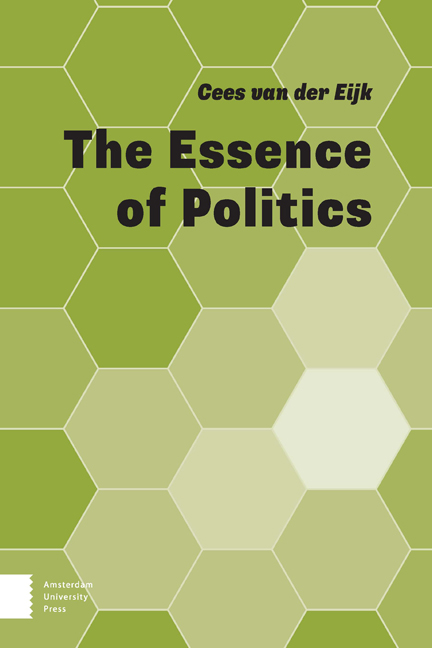Book contents
- Frontmatter
- Dedication
- Preface
- Contents
- Chapter 1 What is Politics?
- Chapter 2 Conflict and Cooperation
- Chapter 3 Key Questions
- Chapter 4 Political Actors
- Chapter 5 Political Conflicts
- Chapter 6 Political Power
- Chapter 7 The Political Landscape and the Wider Context
- Chapter 8 The Political System and the Political Community
- Bibliography
Chapter 2 - Conflict and Cooperation
- Frontmatter
- Dedication
- Preface
- Contents
- Chapter 1 What is Politics?
- Chapter 2 Conflict and Cooperation
- Chapter 3 Key Questions
- Chapter 4 Political Actors
- Chapter 5 Political Conflicts
- Chapter 6 Political Power
- Chapter 7 The Political Landscape and the Wider Context
- Chapter 8 The Political System and the Political Community
- Bibliography
Summary
As indicated in Chapter 1, we understand politics as an aspect of conflictual and cooperative interactions between people and groups about matters that must be settled for a society or community. In this chapter, I will elaborate this perspective by examining the concepts of conflict and cooperation, and by analysing the consequence of the existence of many conflicts.
I will start by defining conflict and cooperation in terms of interests or goals on the one hand, and behaviour on the other hand. This leads not only to a definition of these terms, but also to some non-trivial implications about the inferences to be drawn from, for example, the absence of conflict. Having done this, I will continue by developing the argument that conflict (and cooperation) is unavoidable, and that, therefore, so is politics too. A further refinement of our understanding of conflict and cooperation, and thus also of the nature of politics, is introduced by arguing that, although politics is understood in terms of conflict and cooperation, there are nevertheless some instances in which conflict and cooperation are not political in character.
The last part of this chapter discusses the relations between conflict and cooperation, and between different conflicts. The simultaneous existence of multiple conflicts may lead to quite different consequences, depending on how they are related to each other. Conflicts may reinforce each other, or they may be ‘cross-cutting’, and each of these scenarios has quite different consequences for the sustainability of the political system, as well as for the ‘political capital’ that is created by conflict and cooperation.
What is conflict and cooperation?
In everyday language, the terms conflict and cooperation have not only a descriptive meaning, but they also carry evaluative loadings. Conflict is regarded as deplorable, fruitless or bad, and has to be ‘resolved’; cooperation is good, productive and laudable, and should be applauded. In this chapter, and in contrast to common associations in the everyday use of these words, we must distance ourselves from these evaluative loadings. Thus, conflict is not bad per se, nor is cooperation necessarily good. These words are only used to describe relations and interactions in a way that focusses on interests or goals on the one hand, and behaviour on the other.
- Type
- Chapter
- Information
- The Essence of Politics , pp. 25 - 42Publisher: Amsterdam University PressPrint publication year: 2018



